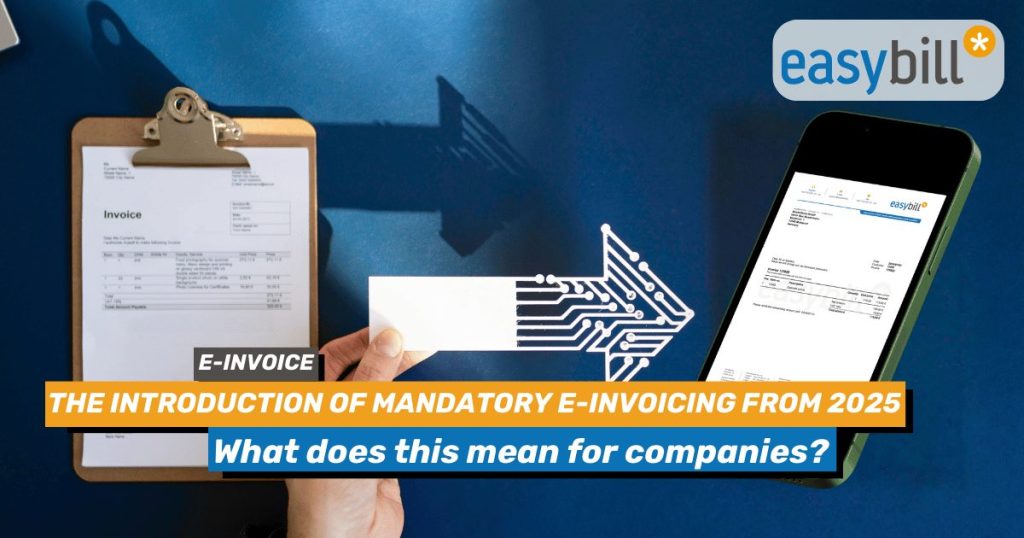
From January 1, 2025, the new Growth Opportunities Act will come into force, which will bring significant changes to invoicing between domestic companies (B2B). In this blog post, you can find out what impact the new draft law will have on companies and what you need to be prepared for.
Background and aim of the law
The bill to introduce mandatory e-invoicing is a key component of the Growth Opportunities Act. The overarching aim is to digitize business transactions and make the processes involved in issuing and processing invoices more efficient. This is intended to reduce administrative costs and improve the transparency and traceability of transactions.
New definition of the e-invoice
From 1 January 2025, an invoice will only be recognized as an electronic invoice if it is issued, transmitted and received in a structured electronic format. These formats must either comply with the European standard EN 16931 or be agreed between the contracting parties and correctly extract all required information.
Obligation to e-invoice
E-invoicing will be mandatory for all transactions between domestic companies. This regulation affects not only conventional invoices, but also credit notes and invoices for special transactions such as travel services or transactions by small businesses.
Formats and transmission
Accepted formats for e-invoices include XRechnung and ZUGFeRD from version 2.0.1. The transmission can take place via email, electronic interfaces or portals for uploading e-invoices. It is crucial that the invoice is machine-readable and that the authenticity of the origin and the immutability of the content are guaranteed.
Exceptions and transitional provisions
There are exceptions for invoices for small amounts up to 250 euros and tickets, which can still be issued in another form. Companies with an annual turnover of less than 800,000 euros will receive transitional regulations until the end of 2027 that allow the use of paper or non-structured electronic invoices.
Practical implications for companies
Companies will need to adapt their internal processes and systems to meet the requirements of e-billing. It may be necessary to work with external service providers to ensure compliance with legal requirements.
Storage and input tax deduction
The structured parts of the e-invoice must be stored unalterably. Only by using electronic invoices can companies meet the legal requirements for input tax deduction, which is why a changeover to the new formats is unavoidable.
More efficiency through the introduction of mandatory e-invoicing
The mandatory introduction of e-invoicing from 2025 represents an important step in the digitalization of business transactions. Companies should familiarize themselves with the new requirements at an early stage, adapt their processes and take advantage of the benefits of e-invoicing.
It is recommended to view the full text of the law on the website of the Federal Ministry of Finance. Timely preparation and adaptation to the new regulations are crucial in order to fully exploit the potential of digitalization.
It is advisable to take advantage of e-invoicing at an early stage and ensure that the organization is optimally prepared when the law comes into force.
The use of specialized e-invoicing software such as easybill can help companies to meet the new requirements efficiently.
Further links and sources
Detailed information and the full text of the law can be found on the website of the Federal Ministry of Finance.
Read also:
Advantages of the e-invoice for accounting
The digital future of the craftmanship: E-invoices on the rise
Create e-invoices in ZUGFeRD 2.2 format (german Help Center)


